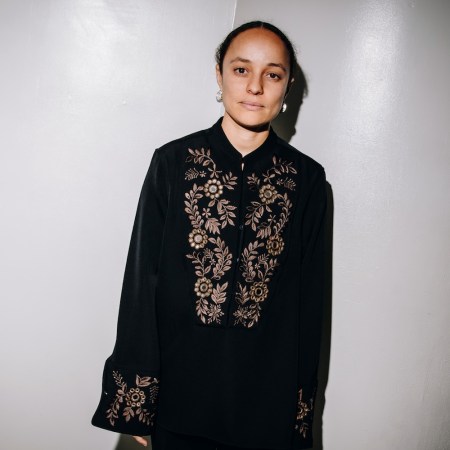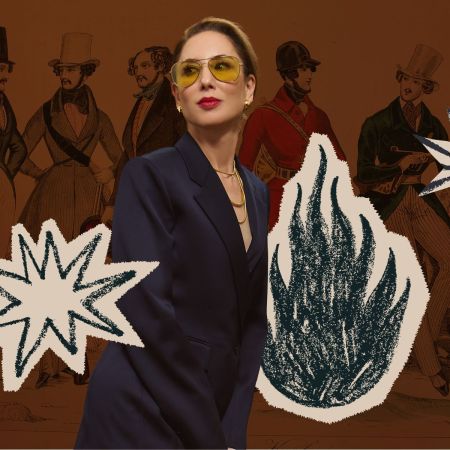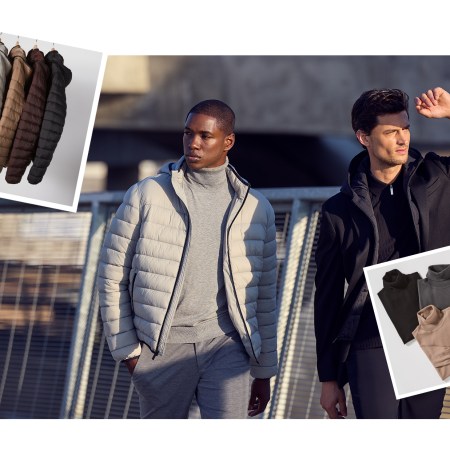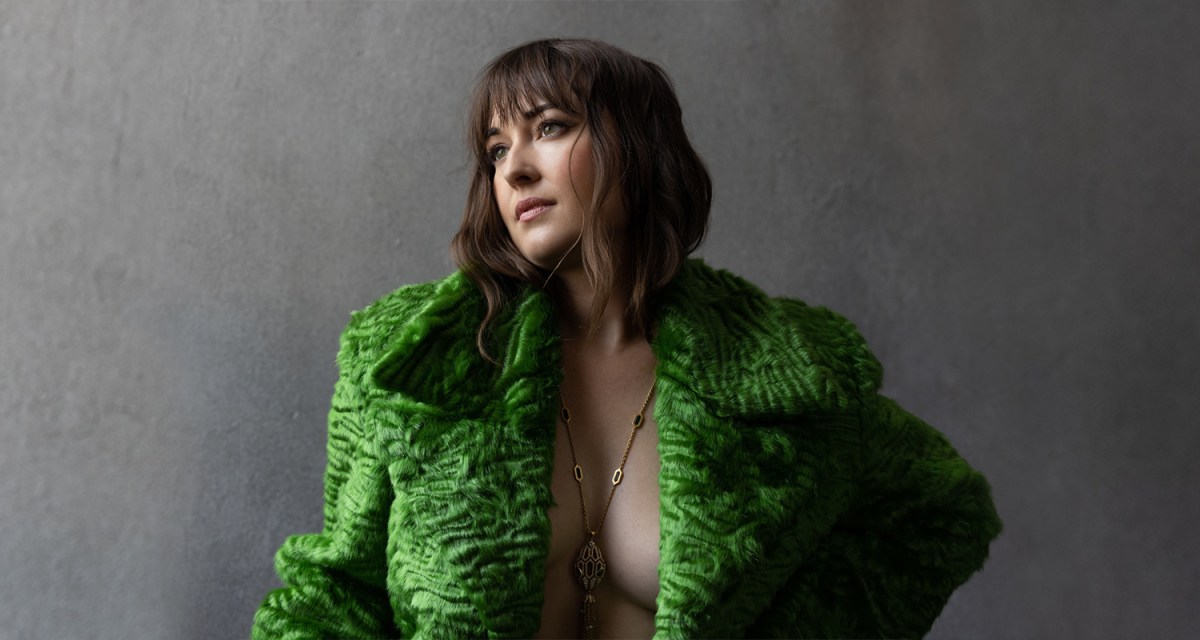
On November 11, 2022, when Plains, the collaborative project featuring Texas-born and LA-based songwriter Jess Williamson and Waxahatchee’s Katie Crutcthfield, played New York City’s Webster Hall, Crutchfield was all business — stoic and calm, a seasoned professional fresh off a tour supporting the biggest success of her career in 2020’s Saint Cloud. I’d seen her headline the very same sold-out room with Waxahatchee just shy of a year earlier, and she seemed charmingly nervous. But here, with Plains, she was more settled, confident. She’d literally been there before.
Williamson, on the other hand, seemed positively giddy, excitedly leaning into the ‘90s country-pop vibe of the Plains sound, dancing coolly around the stage in a sparkly little dress and clearly loving every second of it. She’d already released a few solo records to some relatively modest critical acclaim, but the shows on this tour were the biggest of her career, and at least on this one specific night at Webster Hall, you could practically see her coming to life.
Having relocated to LA after attending college at the University of Texas, Williamson released a series of albums that garnered more and more attention, up until March of 2020 when she released Sorceress, her most ambitious and fully realized collection of songs to date, by a good margin. Her primary musical collaborator at the time was someone she’d been in a relationship with for four years. During the making of that record, that relationship was on the fritz, and by the time the record came out in March of 2020, they’d parted ways.
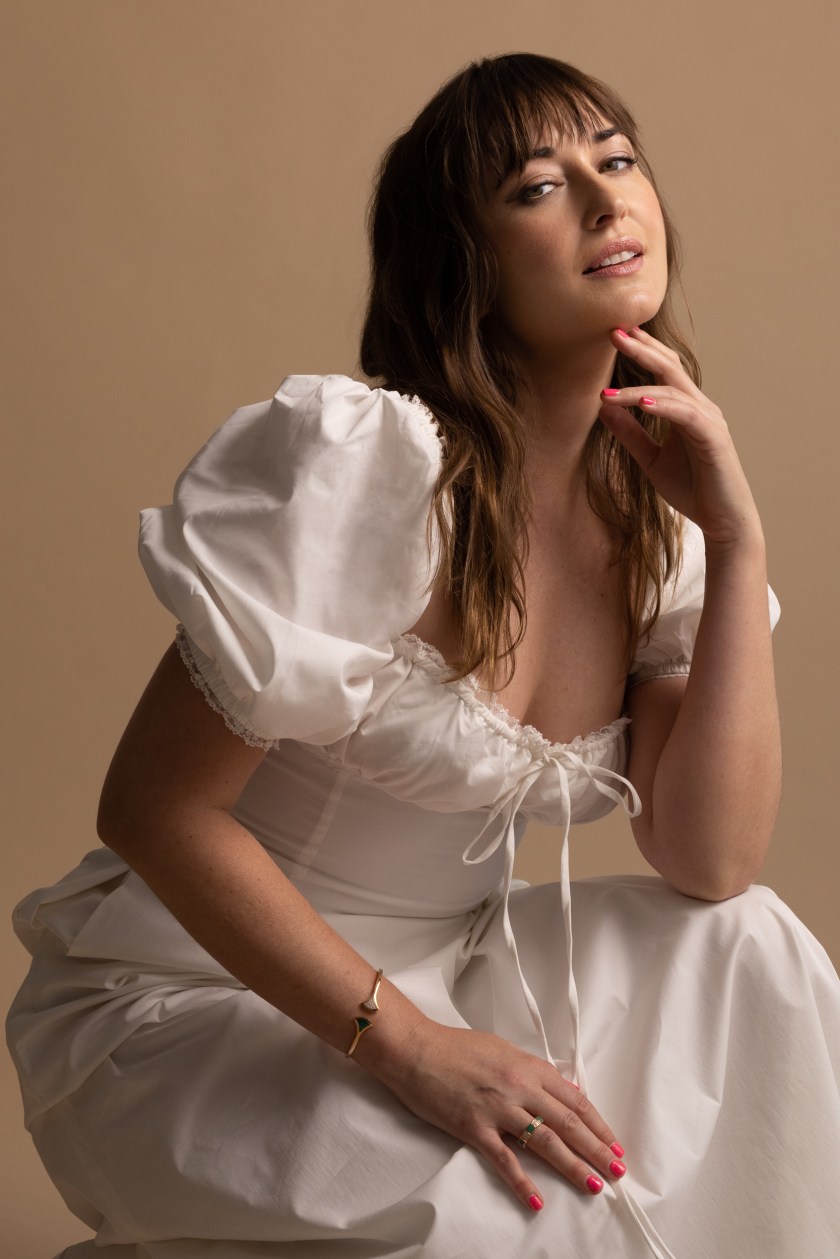
This left Williamson in a precarious position. The best record she’d ever made was about to be released in the earliest, most uncertain days of a pandemic, and a key partnership in both her personal life and her career had dissolved. Plans changed, tours were canceled, and she had nothing to do but write more songs. Some of them would wind up on the Plains record, like the unimpeachably great “Abilene,” while others would wind up on her brand-new album, Time Ain’t Accidental.
Even as Sorceress felt like an important development in Williamson’s career, it is without question surpassed by Time Ain’t Accidental. It’s a record about saying goodbye to something, to someone, and reckoning with the resulting sadness and uncertainty, but then also welcoming something, someone, new. It’s an exquisitely detailed and gorgeous set of songs by an artist who’s coming into her own in a way that is just a pure delight to watch. Her ear for melody is as sharp as anyone’s currently working, her voice is big and powerful enough for her to pull off John Prine’s “Angel From Montgomery” like she’s been doing on her most recent tour, and her lyrics strike just the right balance between plainspoken and poetic.
I got the chance to spend some time with her, first at the photo shoot accompanying this article, and then on a Zoom call a few weeks later in the middle of her ongoing tour, to discuss the album and everything that led up to it.
Time Ain’t Accidental is out now on Mexican Summer Records.
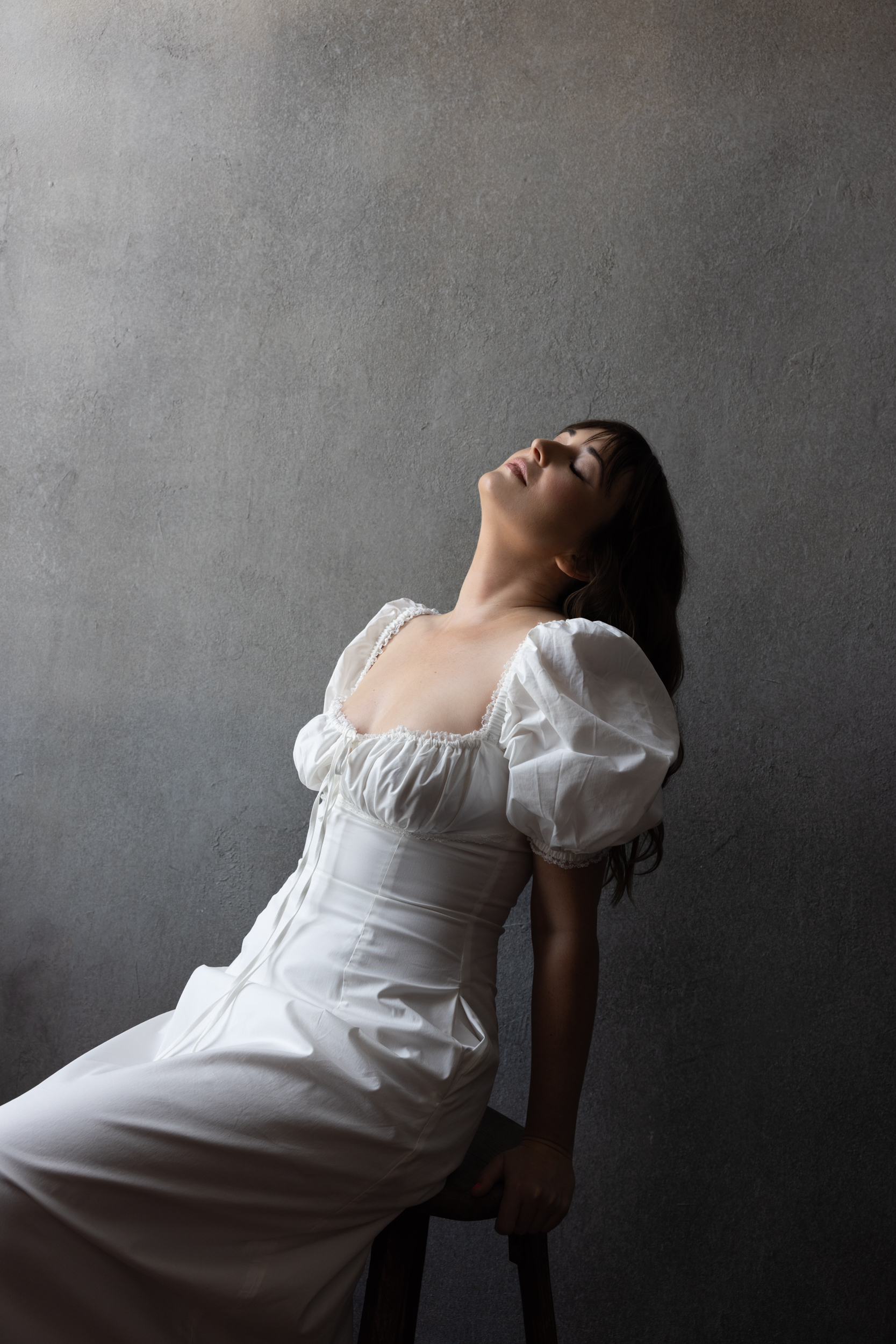
InsideHook: So, I just want to say, honestly, how much I have been loving the record. I just find it so lovely and smart and tasteful, but not in any way desperate or trying too hard to be cool. It feels so honest and open, and knowing what I know about what you went through before writing it, it feels like a real accomplishment. It’s one of my favorite records of the year, and that’s not a question. It’s just a thing I wanted to say because I really love it.
Jess Williamson: Thank you so much. I really appreciate that. Thank you.
I know this is a big, broad topic, but I want to talk a little bit about the genesis of the album, which I guess goes all the way back to the release of Sorceress at the beginning of COVID. How did that experience set you down the path toward where you are today?
Jess Williamson: Yeah. So it’s funny because Sorceress was a record that I wrote and made in the last gasps of this relationship I was in. And we made the record together. We were able to speak pretty openly about what was happening, which is kind of beautiful, and by the time the record came out, the relationship was over.
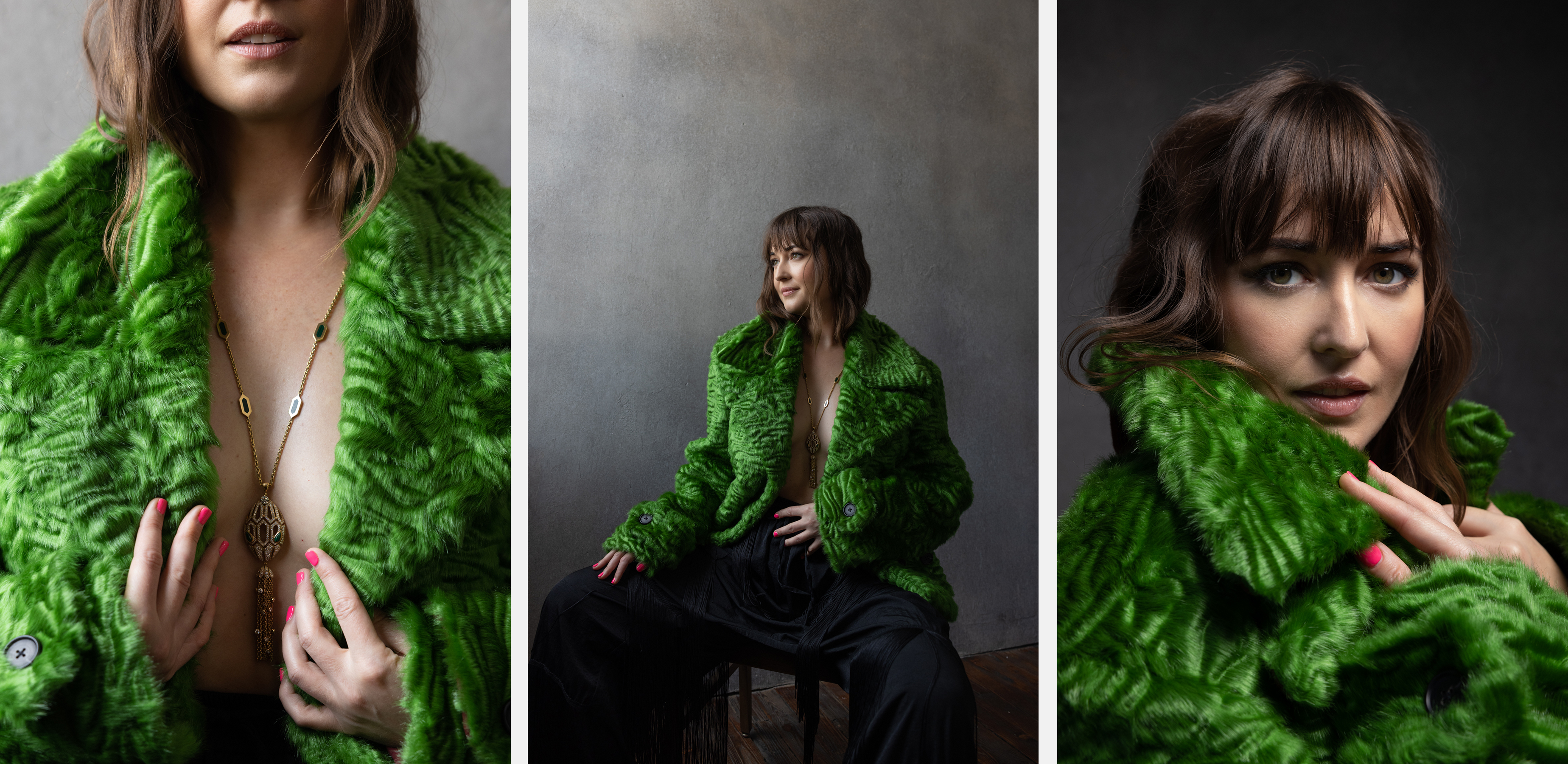
It was clear to you that it was ending at the time?
When we were making the record, I still had hope for it turning a corner, maybe. I think a lot of that record is about me really trying so hard to make it work but knowing that it was too hard. And so then, yeah, by the time the record came out…because it takes a long time, it came out a year later. So by that time, we weren’t together anymore. And it was COVID lockdown time, and all my tours were canceled, all the plans that were made for that record couldn’t happen. And so I just got really busy with writing. I felt like, “I need to make my next record as soon as possible because this one isn’t going to get to have its moment, really.”
And so I just started writing a ton of songs because I had so much time, and then I had so much inspiration, obviously, because of everything I was going through, and I just started writing a ton of songs and thinking that they were all for my next record. But then Katie Crutchfield and I started to talk about doing a country project together, and it was really clear that some of my songs were leaning more country than others. And so once Plains was in the picture, it kind of helped me differentiate what songs are going to be for the Plains record and what songs are going to be for mine.
What I found was that the songs that were clearly for my next record, lyrically, I think spoke in this more singular voice. When I listen to the songs that are on my record, I’m like, there’s a story here. There’s a specific narrative here. This all feels like it’s coming from me in this certain way. So yeah, it was like I was able to see where the songs were going to go once it was obvious that I had this other kind of country band to put some things in.
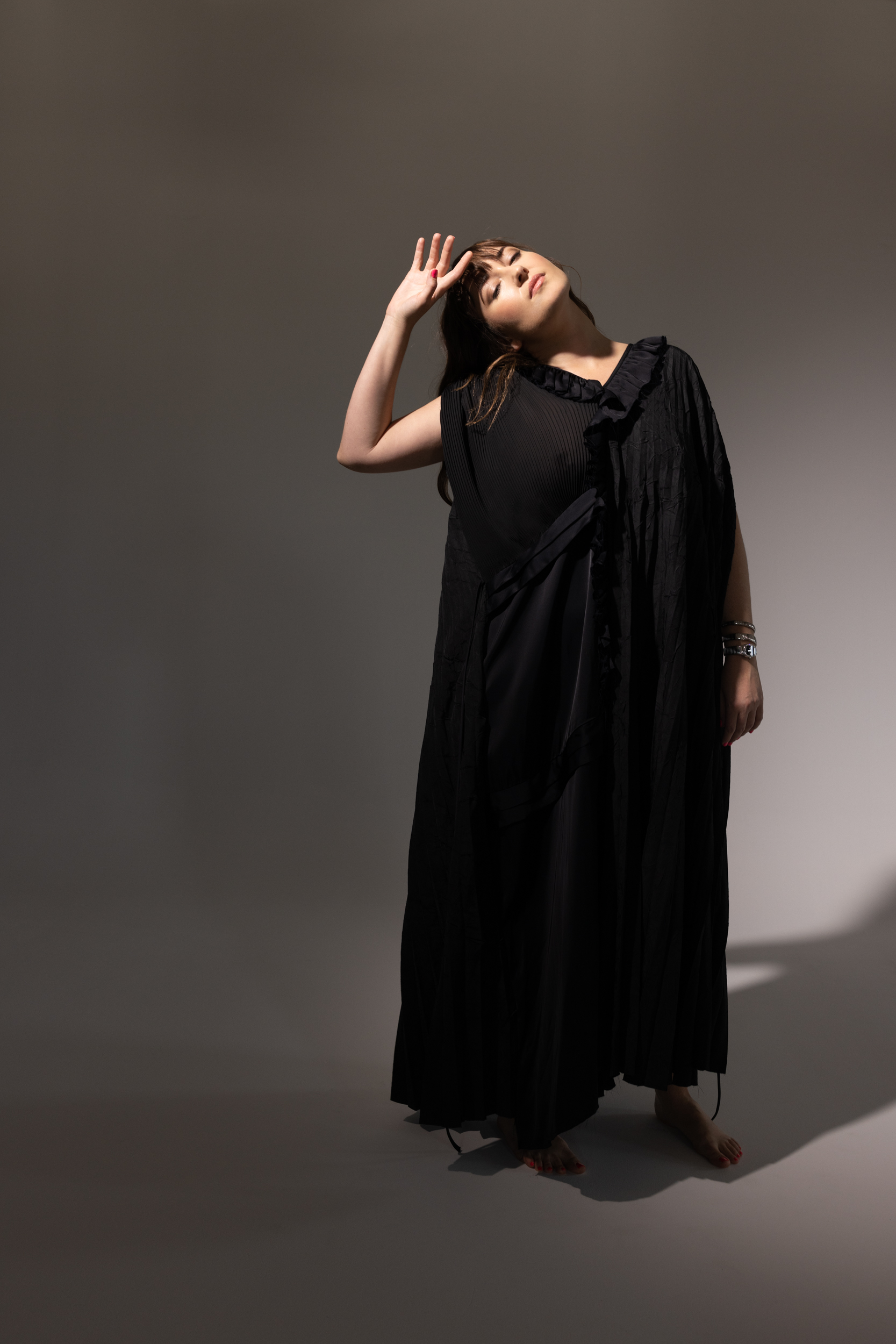
You’ve spoken a bit about some of the nervousness you felt over whether you would be able to make music without your former partner. What was the process of overcoming that like? How did you learn that you could?
Well, the first song that I wrote and released after Sorceress came out was “Pictures of Flowers,” because my label was doing this singles series. It was all things people were recording from home, and they asked me if I would want to contribute something. And at first I wanted to say no because I’d never done that before. I didn’t think I had the appropriate gear or software or skills to do something like that. But because they asked me and because I had nothing but time, I decided to try it, and it went really well. It was an experiment in asking for help because I asked my friend Meg Duffy of Hand Habits to record guitar from home, and they said yes. And then I asked my friend Jarvis Taveniere, a producer and also part of that band Woods, if he would add some bass and if he would mix it from home.
And then I recorded my vocals and my guitar and the drum machine at home, and I had never worked remotely like that. They were friends of mine, but we had never collaborated before. I was nervous about whether they would even say yes. I didn’t know if they would even want to. And to my surprise, they were really excited to be part of it. And so it was this exercise in reaching out to new people, working with new people, working alone. And the song itself is pretty simple. And when it came out, I noticed that the song really resonated with people, so that was the beginning of me realizing that I could write and record and release music on my own, and that I could trust a little bit of a different process.
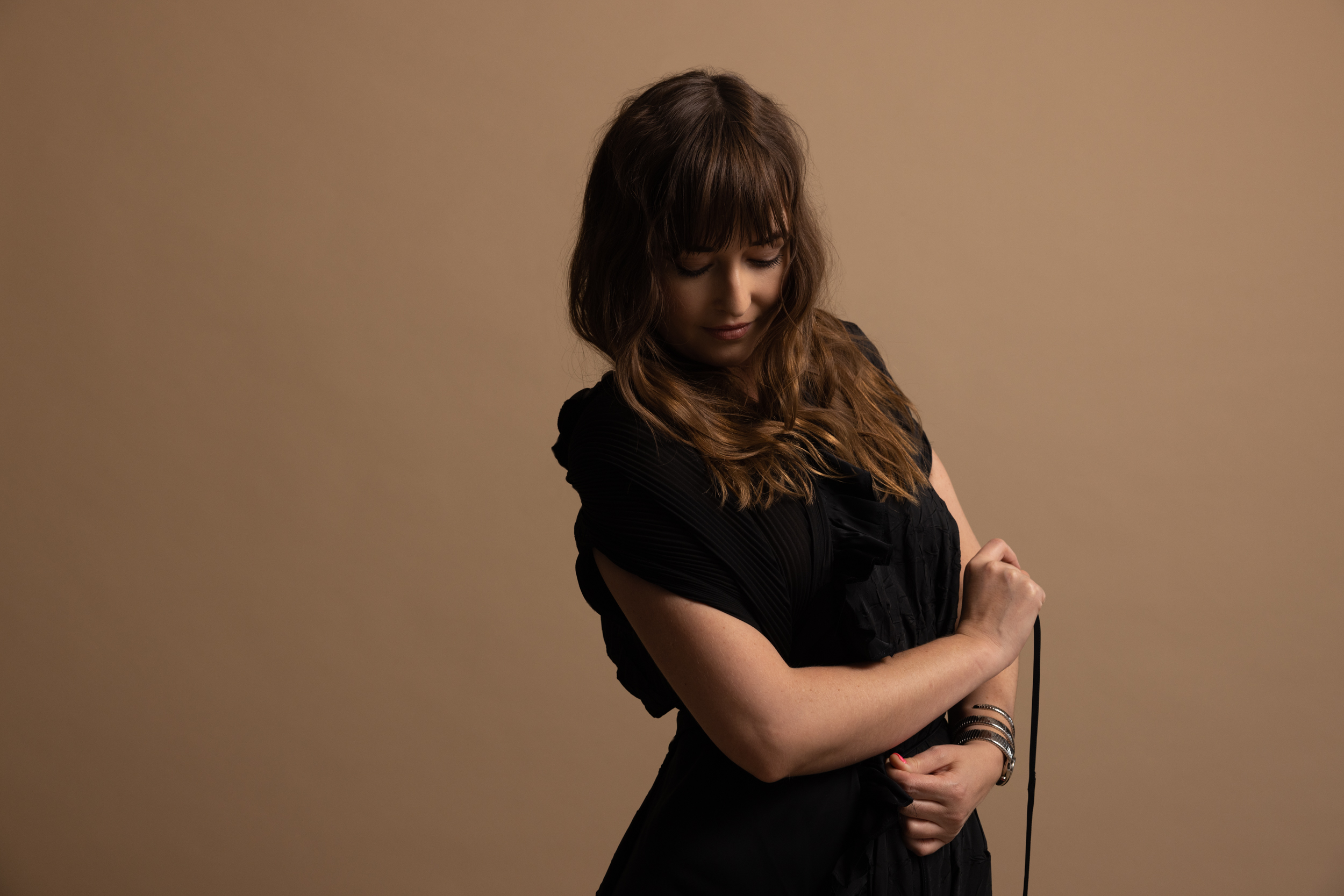
I feel like the tech side of that, too, is really interesting. There’s some fucked-up gender shit that happens when it comes to recording, I think — it’s always felt like such a dumb boy’s club thing. There’s got to be some level of empowerment in being able to take things into your own hands.
I have seen a lot of people wait to release music until they have all of the gear and they can record everything themselves perfectly. The setup that I recorded “Pictures of Flowers” on is super basic. It’s not high-quality stuff. I mean, I have better stuff now, but at the time, really basic stuff. And I think what I learned is that we can really over-complicate this stuff by thinking we need to have all this advanced knowledge and fancy gear. And it’s like, no, some of the most interesting music out there is recorded on an iPhone. It’s like, you really don’t have to have all that. And so, yeah, it was nice to demystify that for myself.
It’s amazing how good even the shittiest recording gear is now, and it’s sad to think about how much music isn’t out there in the world that could be, because people thought they weren’t capable of recording it on their own, of documenting it.
Yeah, absolutely. And also I think what I learned with that song was the power of collaboration because Jarvis mixed it. That helped make it sound a lot better. The drum machine that I recorded, he replaced it with the drum machine that I wanted on it. It was the beginning of me learning that I can ask for help from people that have certain skills. I don’t have to be able to do it all by myself.
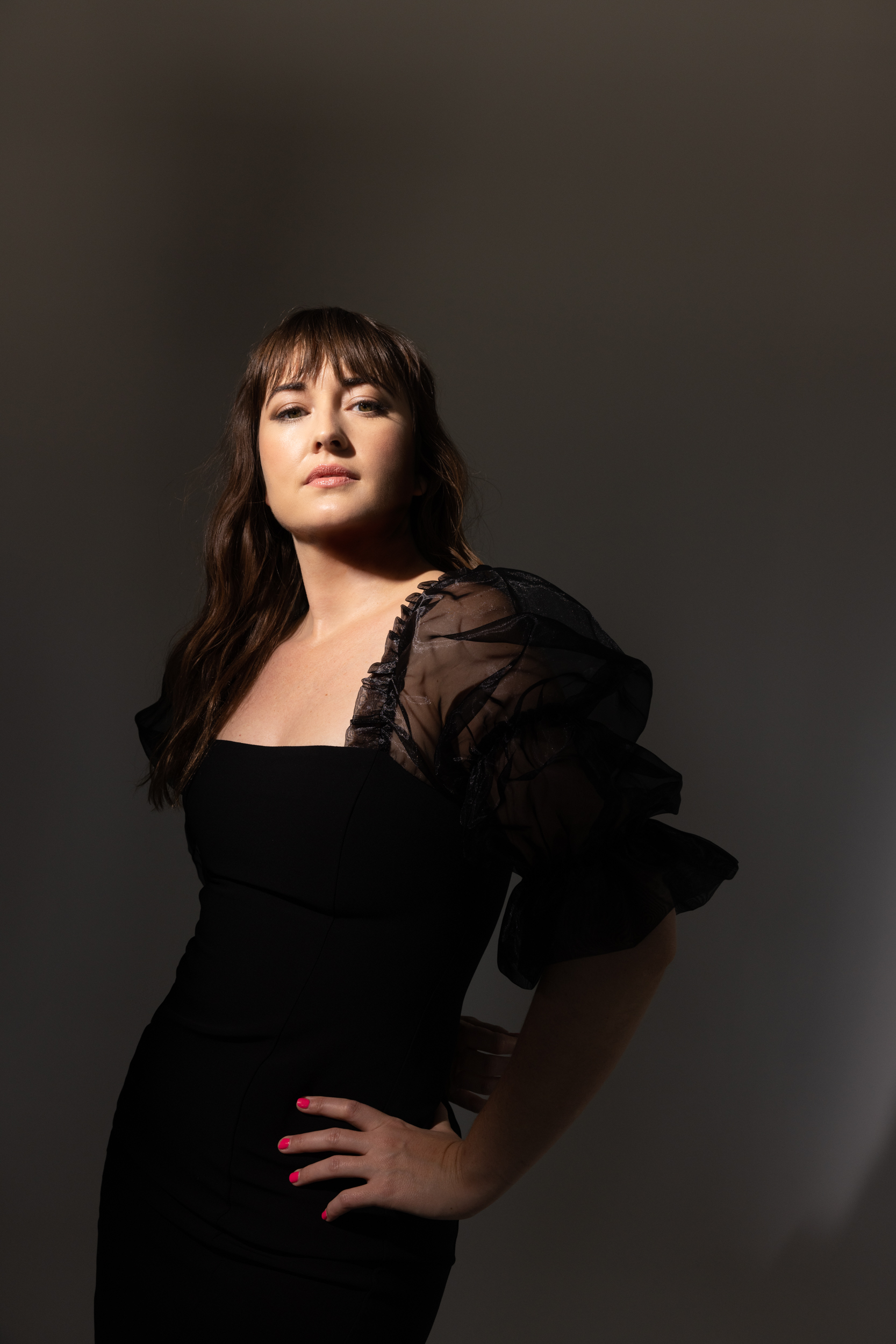
I want to talk about the experience of making the Plains record and then touring behind it. I mean, I imagine those were probably some of the biggest shows you’d played and probably some of the most attention you had received in your career thus far. Was there anything you took away from that experience, either for your own songwriting or just even career-wise?
Yeah, I learned so much from that whole experience. I feel like I got a crash course on a successful album rollout in 2022. I mean, Katie is so good at what she does, and she’s so experienced, and she has an incredible team around her, and she’s so professional and skilled, and I feel so lucky to have been able to work closely with someone at her level and learn from the way that she delegates and the way that she conserves her energy, the way that she doesn’t sweat the small stuff and empowers the people around her. I learned a lot. I think Katie is somebody that knows how to work smarter, not harder. And I think, in the past, I have thought I needed to just work super, super hard all the time. And I think I ran into spinning my wheels sometimes.
I noticed that even in the studio with Katie, I’d be like, “Well, we have two more hours. We could do another cover song.” And she would just be like, “No, we don’t need to.” And it’s just learning how to prioritize my own energy and output and what’s really possible to do in a day. And so now on this tour and with my record and even down to making the videos and the photos and all the things that go into an album cycle, I feel like I got to learn so much from doing that with Plains just last year. And I feel like I’m such a wiser version of myself doing this now with my own record and as a result, having a better time and just feeling so much more relaxed and serene throughout.
I love the Plains record so much, and I bought Sorceress when it came out, but I do think it seems very clear on Time Ain’t Accidental that you just seem to have arrived at something completely new and fully realized since all of this took place.
When I listen to Sorceress, I love the record, of course, but I do hear my own insecurity a little bit because I was still not trusting myself fully. It was still learning a lot and trying things and listening to a lot of other people’s opinions, not really trusting myself. And now I do trust myself, and I think that comes through in my new record. I can really be myself fully, and I think I’m more clear on what that means.
Yeah, it really is palpable. Could we talk about your lyric writing for a bit? I don’t know if it’s the Raymond Carver mention in the title track, but I’m struck by the economy of language. It all feels very… careful to me. How do you treat yourself when it comes to writing lyrics? Is it something that comes easy? Is it something that you do a lot of editing with? Are you hard on yourself?
Yes. I’m really, really intentional about the lyrics to a wild degree. I know for plenty of people, the lyrics they write aren’t so important, or they can be abstract or poetic, but for me, it has to be more than just something that sounds cool. It has to really mean something line by line. That doesn’t mean it’s always autobiographical or factual. I think I get that from Joanna Newsom actually, who’s like my songwriting hero. Her lyrics are so dense, and you can go in and find an entire novel’s worth in one song.
I’ve just always valued lyrics so much as the most important part of songwriting. So yeah, I really labor over the lyrics. Sometimes they come quickly — a song like “Time Ain’t Accidental,” the title track, those lyrics came really fast, but then others take longer. A song like “Stampede,” those lyrics took longer.
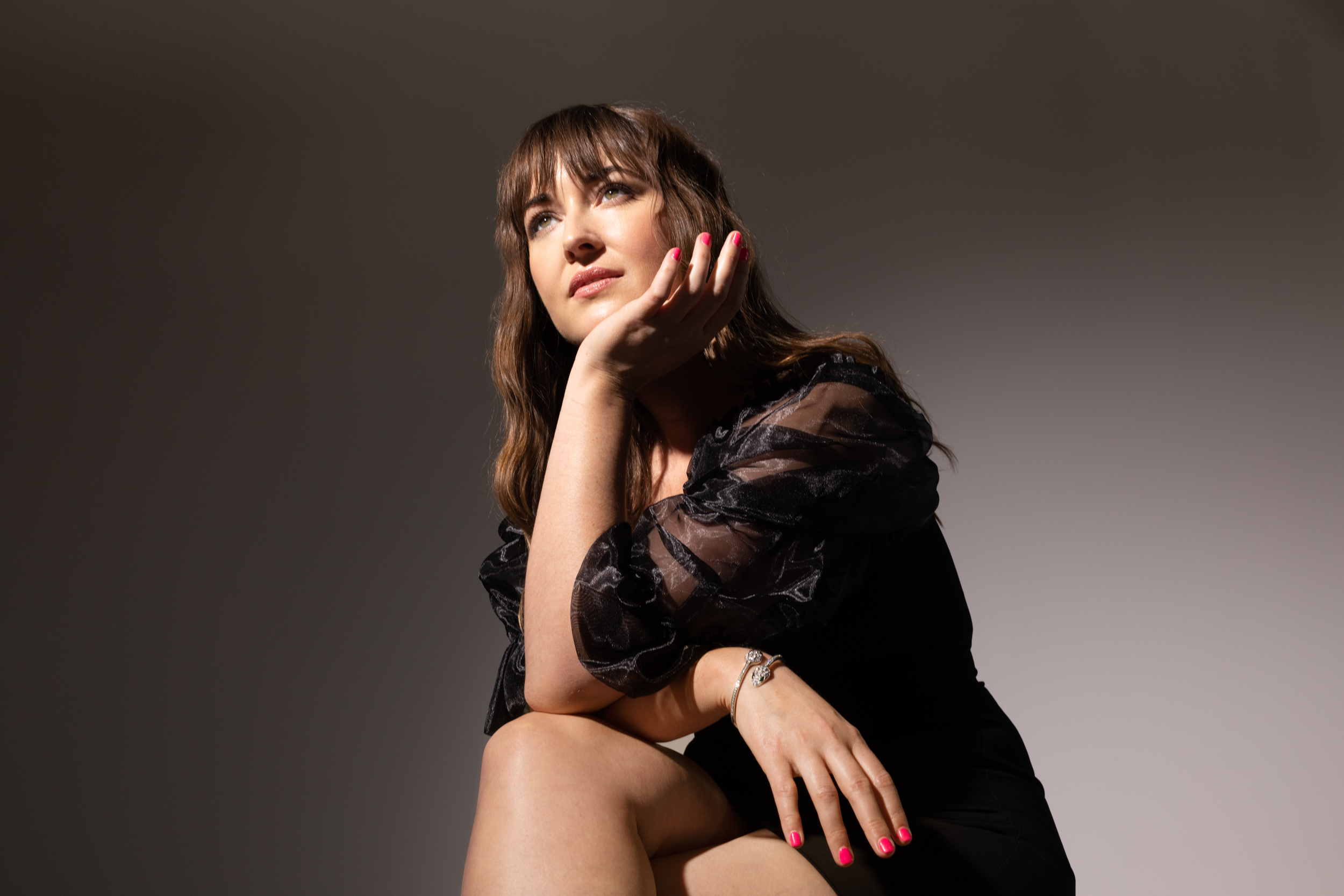
How’d the band that you’re playing with right now come together?
So Matt LaRocca played Guitar in Plains, so we got to know each other on the Plains tour, and he’s playing guitar with me on this tour. Caleb Veazey is playing bass and keys, and Caleb actually was the guitar tech on the Plains tour. Matt and Caleb grew up together, and they’re both from Dallas, and I’m from Dallas. And so three of us really bonded on the Plains tour. And so when I was putting a band together for this tour, I reached out to both of them because it’s always nice to know that you get along and you travel well together. And Owen Barrett, who’s playing drums (and he plays banjo on one song), is a new friend, a new collaborator. He was highly recommended to me through some mutual friends in LA, and we got together and jammed and it was just perfect right away. So that’s the band for this tour.
How’s it been going?
It’s been amazing. It’s been so awesome. I mean, those New York shows were sold out, which was so special, and it’s just been so nice to be on tour and playing my own songs, playing a lot of the new songs. I haven’t done a headlining tour since before COVID, so it’s been really cool to get back out there and have people at the shows that know songs off Sorceress because I never got to tour that record.
I know that you travel a lot between LA and Marfa. How does being on tour so much impact your sense of home? Do you find yourself more drawn to exploring other places, or does it just really convince you that you need to have a home base?
I’m definitely in this mode of wanting a home base. And it’s funny because I sort of have three homes right now. There’s LA, there’s Marfa, and then there’s tour, which is its own weird home. So I’m pretty scattered around. And it’s funny because it’s something I always wanted. It was always my dream to be able to tour a lot, have a foot in LA and a foot in Texas. And so I’m really trying to enjoy it for this moment, but I can see that in the not too distant future, I’m going to want to consolidate and have one main home base because now that touring is picking up again, it’s like I can go out and run around the world, but it’s nice to have that one place to come home to.
Do you find yourself using the driving time on tour similar to how you did during COVID? Is it a productive time for you or is it at this point just sort of killing time?
What I’m really trying to do on these drives is force myself to read. Normally on my long drives, I’m the one driving, right? But now someone else is driving, so I’m trying to read a lot, and that’s been nice. I’m reading the Nick Cave book that just came out. I really like reading things by musicians when I’m on tour.
Interesting. You’re not looking to escape that at all?
No, it’s inspiring. It’s like we’re in this together.
************
Photography: Ebru Yildiz
Location: Brooklyn Grain Photo Studio
Fashion/Creative: Kevin Breen
Assistant: Emily Ragano
Grooming: Avery Christine Golson, See Management

